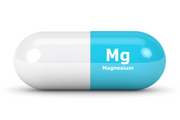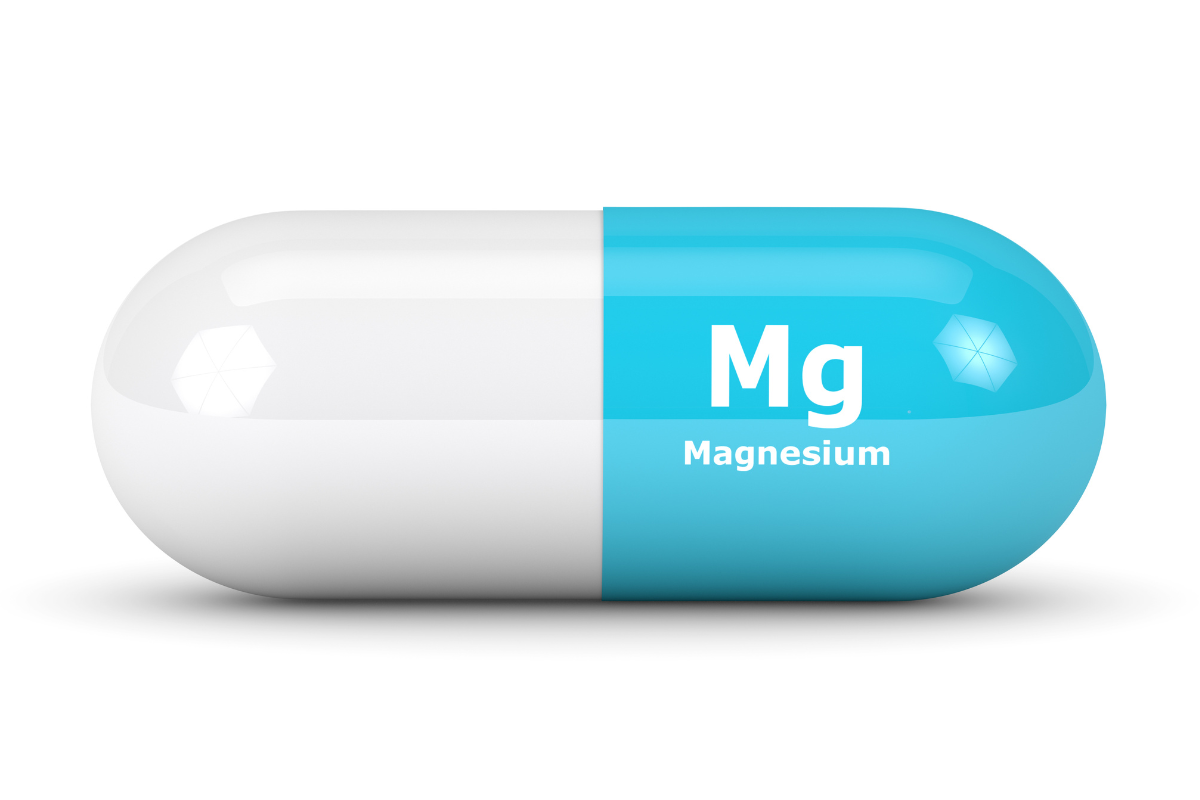Best Time to Take Ashwagandha: Morning or Night?

Ashwagandha has become one of the most talked-about herbal supplements in recent years - and for good reason. Ayurvedic medicine, a traditional Indian healthcare system, has long used ashwagandha for its stress-relieving and adaptogenic properties.
This ancient Ayurvedic herb is praised for its ability to support stress relief, improve sleep, and help with energy levels. But if you’re wondering when to take it for the best results, you’re not alone.
Let’s make timing your ashwagandha as easy as making your morning cuppa.
What Is Ashwagandha?

Ashwagandha (Withania somnifera) is a small shrub native to India and parts of Africa. The ashwagandha root is typically used in herbal extracts and supplements, highlighting the significance of withanolides found in the root for efficacy. It’s often called an adaptogen, meaning it helps the body cope with stress.
Ashwagandha is also known as Indian ginseng and plays a significant role in traditional Ayurvedic medicine. Many people take ashwagandha for:
-
Stress and anxiety relief
-
Better sleep quality
-
Improved energy and focus
-
Support for hormone balance
-
Muscle strength and recovery
Now, let’s talk about timing.
When Is the Best Time to Take Ashwagandha?

The truth is, there isn’t a universally perfect time to take ashwagandha. It depends on your goals and lifestyle. Some people find it helpful to take it in the morning to boost energy, while others prefer taking it at night to aid sleep and relaxation. Different products might have specific recommendations, so it’s worth considering these factors.
The best time to take ashwagandha really depends on why you’re taking it. Everyone’s routine and reasons are different, but here are the most common options:
Morning: For Energy and Focus
If you take ashwagandha in the morning, it may help you:
-
Stay calm under pressure during a busy workday
-
Keep your mind clear and focused
-
Avoid that mid-morning energy crash
Many users report feeling a subtle lift in mental clarity when they take Ashwagandha with their breakfast. Just make sure to eat something first - taking it on an empty stomach can cause mild upset stomach in some people.
Best for:
-
Daily stress management
-
Focus and energy support
-
Workplace performance
Evening: For Better Sleep and Relaxation
Ashwagandha has also been linked with better sleep. If you’re someone who struggles to wind down at night, taking it an hour or two before bed could help you feel more at ease.
Additionally, ashwagandha is known for reducing stress and promoting relaxation, which can significantly improve sleep quality. Some studies have shown ashwagandha may improve sleep quality, particularly in people with insomnia or anxiety-related sleep issues.
Best for:
-
Falling asleep faster
-
Waking up less during the night
-
Reducing late-night overthinking
What Are the Benefits of Ashwagandha?

Ashwagandha has been used for thousands of years in traditional Indian medicine - and today, science is starting to back up what ancient healers already knew. Studies have shown that ashwagandha can help reduce anxiety symptoms and cortisol levels. Here’s a look at the main benefits:
1. Helps You Handle Stress Better
One of ashwagandha’s best-known effects is its ability to support your body during stressful times. It doesn’t knock you out or give you a sudden jolt of energy. Instead, it works in the background, reducing stress and helping you stay balanced when life gets hectic.
Think of it as a calm coach for your nervous system. Research shows it may help lower levels of cortisol - a hormone your body produces when you’re stressed.
2. Supports Better Sleep
Can’t switch off at night? Ashwagandha may help. Some studies suggest it can improve sleep quality, especially in people who struggle to fall or stay asleep due to anxiety symptoms. It’s not a sedative, but it can help your body relax enough to ease into rest more naturally.
3. Boosts Mental Focus and Clarity
Although it’s calming, ashwagandha doesn’t make you feel sleepy during the day. In fact, many people take it to stay sharp at work, especially when juggling deadlines or multitasking. It may help improve concentration and reduce mental fatigue by helping the body adapt to physical and mental stress.
4. May Support Hormone Health
Ashwagandha has been linked to improved thyroid function and balanced hormones in both men and women. Some research also shows it can support healthy testosterone levels and reproductive health, particularly in men dealing with low energy or fertility concerns, highlighting its potential health benefits.
5. Can Help with Energy and Endurance
Feeling drained or burnt out? Ashwagandha may support better physical stamina and recovery. That’s why it’s sometimes used by athletes and gym-goers - ashwagandha supplementation may help muscles recover quicker and reduce exercise-related fatigue.
Can You Take Ashwagandha With Other Dietary Supplements?

You can generally take ashwagandha alongside other supplements - and in some cases, they work well together. Ashwagandha is considered quite gentle and is often added to wellness routines without causing problems. But, as with anything related to health, it’s all about balance and knowing what combinations make sense for your body.
It is important to consult with healthcare professionals before combining ashwagandha with other dietary supplements to ensure safety and avoid potential interactions.
Let’s explore some common pairings:
Ashwagandha and Magnesium
A popular combo, especially for people looking to unwind. Magnesium supplements support muscle relaxation and nervous system health, while ashwagandha helps reduce stress and promotes calm. Together, they’re often used in the evening to encourage better sleep and help the body relax after a long day.
Ashwagandha and Vitamin B Complex
B vitamins support energy production and help regulate mood. When paired with ashwagandha, which helps balance cortisol (the stress hormone), this duo may help you stay more focused and energised during stressful times.
Ashwagandha and Vitamin D
Vitamin D supports immune health, mood, and bone strength. Some people combine it with ashwagandha for a daily wellbeing boost, particularly during the winter months when energy and mood tend to dip.
Ashwagandha and Rhodiola
Both are adaptogens, meaning they help your body cope with stress. An ashwagandha supplement is particularly effective in managing stress and anxiety. Rhodiola is slightly more energising, while ashwagandha is more calming. When used together, they may offer a balanced approach - ideal for people looking for stress support without feeling wired or drowsy.
What to Watch Out For
While ashwagandha is generally well-tolerated, there are a few things to keep in mind:
-
Avoid taking it with high doses of caffeine or strong stimulants - this can send mixed signals to your nervous system.
-
Don’t pair it with sedatives or sleep medications unless your healthcare provider says it’s okay. Ashwagandha may enhance their effects, making you feel extra drowsy.
-
If you’re on thyroid medication, speak to a doctor before taking ashwagandha. It can influence thyroid hormone levels.
-
Pregnant or breastfeeding? It’s best to avoid ashwagandha unless specifically advised otherwise by a medical professional.
For complementary and integrative health, it is crucial to consult healthcare providers before using ashwagandha, especially for those with underlying health conditions.
Always Read the Label
Supplements vary in strength and purity, so always read the label and follow the recommended dosage. It is crucial to understand the strength and purity of dietary supplements to ensure their safety and efficacy. When combining more than one supplement, it’s important to introduce them gradually so you can see how your body responds.
Final Thoughts

Ashwagandha isn’t a magic pill - but with the right timing, it might make a real difference in how you feel day to day. Whether you need more focus in the morning or a little help unwinding before bed, this ancient herb can support your routine in a very modern way.
Looking to get started or restock your supply? At Proactive Healthcare, we stock high-quality, carefully selected ashwagandha supplements you can trust. Browse our ashwagandha range today and find the one that fits your lifestyle.
Check out our guide on How to Take Ashwagandha for more information.
Frequently Asked Questions

1. Can I take ashwagandha on an empty stomach?
It's best to take ashwagandha with food, especially if you have a sensitive stomach. Some people experience mild discomfort or nausea when taking it without eating first. A small meal or snack usually does the trick.
2. Can ashwagandha be taken during the day and night?
Depending on your needs, you may be able to split the dose - for example, half in the morning and half in the evening. This is especially helpful if you're using it for multiple reasons, like daytime stress and better sleep at night. Just check the label for dosage guidance.
3. How long does it take for ashwagandha to work?
Ashwagandha isn’t a quick fix - it works gradually. Most people begin noticing subtle effects like improved mood or reduced stress within 2 to 4 weeks of daily use. Consistency is key, so stick with it for a few weeks before judging results.
4. What’s the best form of ashwagandha to take?
Ashwagandha comes in various forms - capsules, powders, tinctures, and gummies. Capsules are the most convenient for most people, but ashwagandha powder is great if you want to mix it into drinks or smoothies.
5. Can I take ashwagandha with antidepressants?
Always speak with a medical professional before taking ashwagandha, especially if you’re taking antidepressants or any medication that affects mood or hormone levels. It may interact with certain medications, and it’s always better to be cautious when combining supplements with prescriptions.
Disclaimer: This content is for informational purposes only and does not constitute medical advice. Always consult with a qualified healthcare professional before starting any new supplement, especially if you are pregnant, nursing, taking medication, or have a medical condition.







